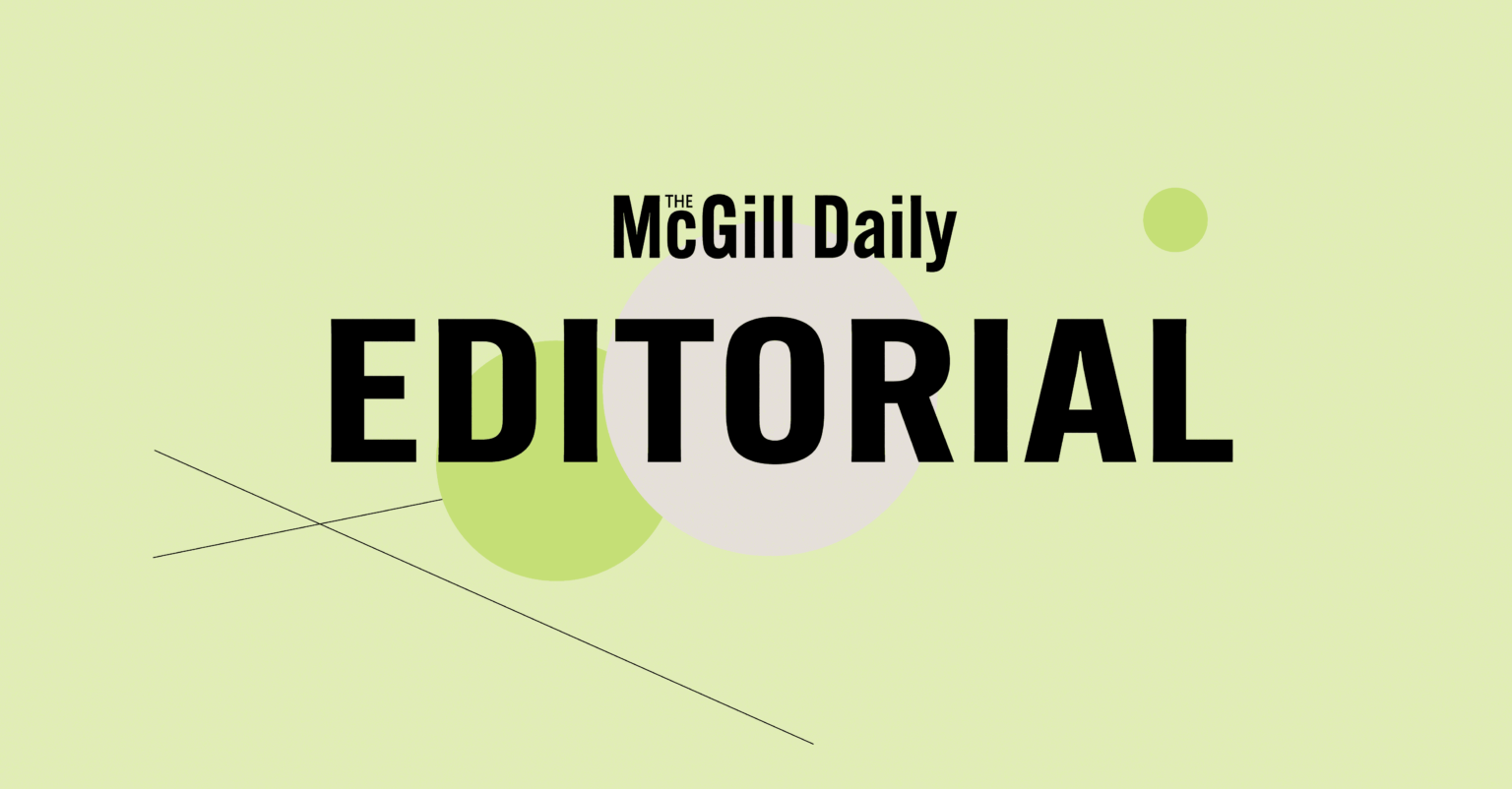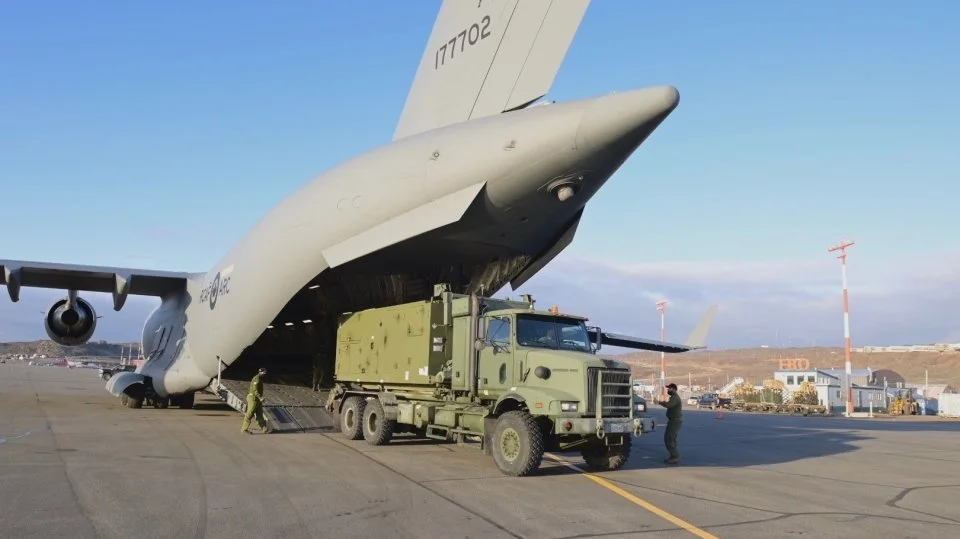According to a public service announcement, small amounts of fluid “released from the helicopter have been noted in the water within the containment area and have been removed.” A contractor has been monitoring contamination through water sampling of the crash site. As of Tuesday afternoon, Lavallee said sampling hasn’t found any contamination along the riverbank or beach. “We have some specialized equipment on site, on the river, to contain any fluids like lubricants, or fuel, or any contaminant that may leave the aircraft into the water to prevent that contamination from getting into the wider environment. There has been some evidence of some small amount of fluids that have come out of the helicopter, but it’s all been contained by this specialized equipment.”
No timeline for Iqaluit water crisis review, but minister commits to public release
Nunavut's health minister says one of the primary goals of a third-party review of the Iqaluit water crisis is to restore the public's confidence in the government. In an interview with CBC News, John Main committed to releasing as much information to the public as possible when the review is complete — although there's still no timeline for when such a review will even begin.
Thousands of CAF members eligible for compensation for drinking contaminated water
For years, Ed Sweeney served in the Canadian Armed Forces living at CFB Valcartier military base starting in 1991. While he faced the ordinary dangers that come with serving with the 5e régiment d’artillerie légère du Canada, including a deployment to Bosnia in 1995, he also faced a grave danger at home. For decades, the Department of National Defence (DND) and two private companies, SNC-Lavalin and General Dynamics, were contaminating local water sources around the base and the neighbouring municipality of Shannon, Que., with a dangerous carcinogenic called trichloroethylene.
Military members eligible for Shannon contaminated water compensation could miss out
Hundreds of people including military personnel, who are eligible for compensation from the federal government and two private companies in a multimillion dollar contaminated water case in Shannon Que. are running out of time to take part in the class action. Claimants have until July 10 to come forward, but so far, only 1,250 people out of 5,000 who are eligible have filed a claim with the firm Raymond Chabot Grant Thornton, which is administering the class action.
BluMetric Proprietary Cleantech Brings Potable Water to Iqaluit Residents
BluMetric Environmental Inc. (TSXV: BLM) is committed to providing clean drinking water in emergency situations. On October 12, 2021, Iqaluit declared a state of emergency due to its contaminated water supply. The Canadian Armed Forces (CAF) responded on October 23, 2021, by deploying mobile water purification units that were designed and built by BluMetric. These units were successful in providing potable water to local residents. BluMetric's emergency water treatment solution is designed to be deployed in the harshest of environments. It is proven to remove carbon, biological, radioactive and nuclear contaminants and 99.9 per cent of all bacteria and viruses. The treatment system operates within a 20-foot container and is truck, rail, and air portable.
Military resumes purifying river water in Iqaluit as city searches for solution to plastic bottle waste
Two weeks after a winter storm in Iqaluit took down the tent that housed the Canadian Armed Forces' water purification system, their efforts to provide the city with clean drinking water have resumed. On Monday, the City of Iqaluit announced residents can get purified river water from the military's purification system at Abe Okpik Hall or Elder's Qammaq, but they have to bring their own buckets or jugs — the water depots are no longer providing bottled water.
Bad weather hampers military efforts to purify Iqaluit river water
Seven weeks into Iqaluit's drinking water crisis, the Canadian Armed Forces is finalizing plans to move its water purification efforts in Iqaluit to an existing military facility, as the city's water remains unsafe to drink. The original plan, which involved using a reverse osmosis water purifier at the Sylvia Grinnell River was waylaid Nov. 22 by a winter storm that snapped the frame of a military tent that sheltered clean water bladders from the reverse osmosis system.
City of Iqaluit tells residents to have enough water for storm
The City of Iqaluit urged its residents to have enough water on hand to last for 72 hours because of strong winds and heavy snowfall expected to start Monday night and end on Tuesday. “The City is recommending that residents refill water, in the event that the potential incoming storm limits their ability to leave their homes and get to water refilling depots,” Aleksey Cameron, communications manager with the city, said to Nunatsiaq News in an email. Tuesday marks the start of the seventh week that Nunavut’s largest community has been under an order not to consume city tap water, after diesel fuel was detected in the water in October. Many residents have been getting their water from city-run filling stations that provide water purified by the Canadian Armed Forces, who draw water from the Sylvia Grinnell River and run it through their temporary purification system.
Iqaluit’s Water Crisis Demands Action Now
On October 12, the city of Iqaluit, Nunavut declared a state of emergency following the discovery of fuel contamination in their water supply. A full month later, the city remains in a water crisis, with little indication as to when the water supply will be back in service. The Canadian Armed Forces have been enlisted for an indeterminate period of time to provide potable water to residents. This indefinite military presence in the city is disturbing – the government is forcing citizens to depend on the armed forces for drinking water, a basic necessity. As a city with a large Inuit population, the crisis in Iqaluit highlights the federal government’s continued disregard of Indigenous peoples and their health. According to Lorraine Rousseau, Public Service Alliance of Canada North Regional Executive Vice President, this represents “decades of broken promises and ongoing inequalities that Inuit and Indigenous communities face.”
Canadian Armed Forces now providing potable water to residents of Iqaluit
The Canadian Armed Forces is now providing potable water in Iqaluit amid its ongoing water contamination crisis. The city has been under a state of emergency since Oct. 12, when staff confirmed evidence of fuel contamination in the city's treated water supply. Residents were told the water is unsafe to drink, even if filtered or boiled. The CAF is using mobile water treatment units to treat water from the Sylvia Grinnell River using reverse osmosis. It then transfers potable water to a designated city water truck that carries it to water filling depots at the Arctic Winter Games and the library parking lots.
Iqaluit expects water testing to come back clean; tap water still undrinkable
Nunavut's capital city says it expects tests on its drinking water to show undetectable levels of fuel. Iqaluit is under a state of emergency and its roughly 8,000 residents haven't been able to consume tap water since Oct. 12 because of fuel contamination. The city says in a news release that it has finished work to remove hydrocarbons from the water treatment plant. It says it plans to continue flushing its water treatment plant until Thursday, and residents will need to flush their own pipes by running taps after that.
Military arrives in Iqaluit to set up reverse osmosis water purification
The Canadian Armed Forces says its members have arrived in Nunavut's capital to assist with the city's ongoing water emergency. Prime Minister Justin Trudeau tweeted Friday that he had spoken with Nunavut Premier Joe Savikataaq and the military would be deployed to Iqaluit to co-ordinate and deliver clean drinking water. Late Saturday, the military tweeted that there are over 20 Canadian Armed Forces members in Iqaluit setting up deployable equipment for reverse osmosis water purification.












